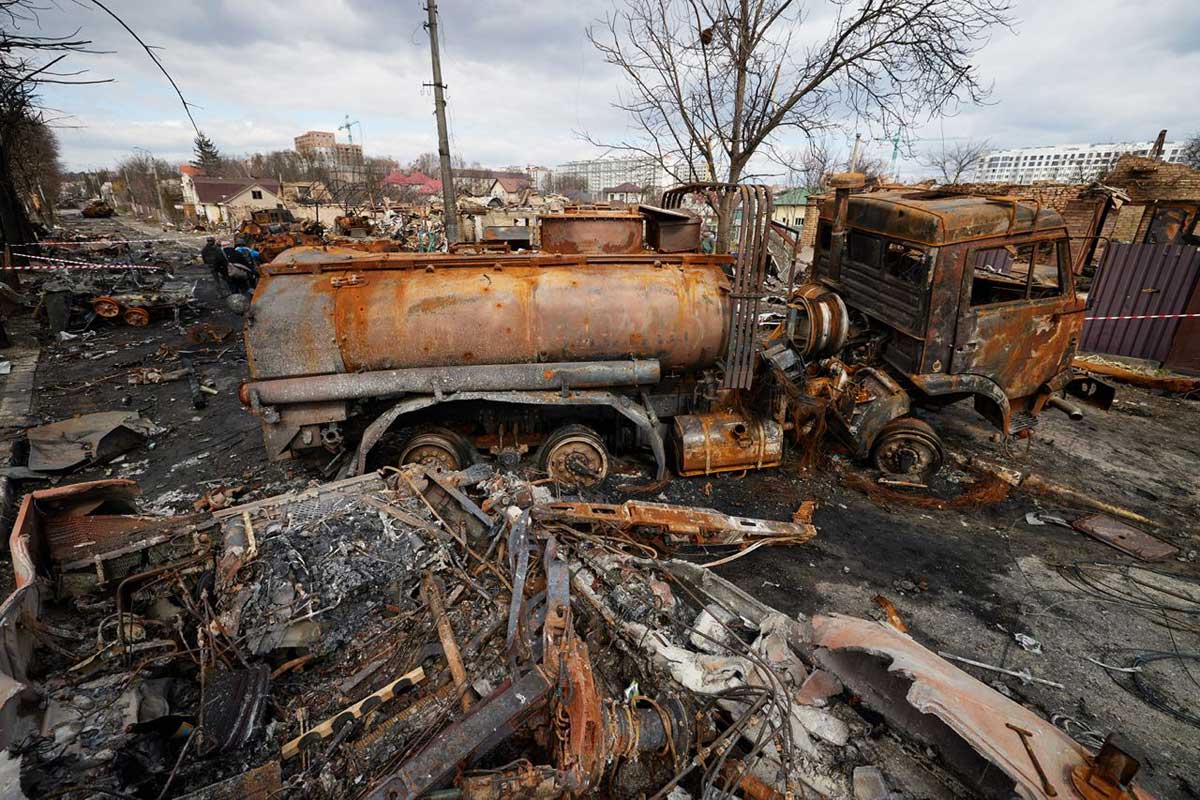Whoever is responsible for starting this war, it is becoming horrifically clear that everyone would benefit from ending it.
So, what is preventing a ceasefire? The two most obvious sticking points are Zelensky’s presidential decree of October 4, 2022, prohibiting any negotiations with Russian president Vladimir Putin, and the adamant opposition of the United States to any ceasefire “right now.”
It is a platitude to say that ending the war will benefit all. But it is no longer merely a benefit for Ukraine; it is now essential for its very survival.
Despite the fact that the West now covers more than half of the country’s government expenditures and has deferred repayment until 2027, Ukraine’s debt this year stands at over 88 percent of GDP and is expected to rise to over 100 percent in 2025. In current dollars, the United States spent as much to rebuild Afghanistan as it did for the Marshall Plan. It has spent as much again to date in Ukraine without rebuilding anything.
Millions have fled the country. From a height of over 50 million in 1990, Ukraine’s population today is probably less than 32 million. President Kuchma’s former Chief of Staff, Viktor Medvedchuk, now in exile in Russia, estimates that there are more Ukrainians outside than inside Ukraine.
As unfair as it is that Ukraine has to negotiate anything after suffering such horrendous losses, tomorrow it may well be worse. Ben Wallace, the former Secretary of State for Defence of the UK, inadvertently revealed that the average age of the soldiers at the front is over forty. To put this figure into perspective, the average age of American soldiers killed in Vietnam was just over twenty-three, and the median age of British servicemen during WWII was close to twenty-five. And it scarcely raised an eyebrow when Ukraine’s Deputy Defense Minister, Natalya Kalmykova, mentioned in a television interview that draft dodgers currently numbered in the “tens, hundreds of thousands of people.”
These may be some of the reasons that one of Ukraine’s staunchest allies, Polish President Andrzej Duda, recently referred to Ukraine as a “drowning man” who might pull those trying to help down with him. Baldly stated, a longer war means the obliteration of Ukraine.
To be sure, ending the war will benefit Russia, and many will consider this fundamentally unfair. But Russia, too, has lost many lives and must consider the possibility that further escalation of the war will lead to more losses and bring more risks and danger, including the possibility that Russia’s current friends in the Global South may also grow weary of the toll of this war. The negotiating table will likely bring it what it seeks far faster than the battlefield will.
Finally, ending the war will benefit Europe’s suffering economies. It would arguably also benefit the United States, which, while benefitting from a weakening of Russia, cannot possibly benefit by pushing it closer and closer into China’s arms. Rather than isolating Russia and enhancing U.S. hegemony, the war has fueled economic and political multipolarity and strengthened the Russia-China strategic partnership. Having demonstrated the prowess of its military weapons in thwarting Russian expansion, the United States could now demonstrate the prowess of its diplomacy by encouraging an end to this dismal conflict through negotiations.
It is time to stop asking who is to blame for starting the war and start focusing on what needs to be done to stop it, ‘The National Interest’ stresses.
